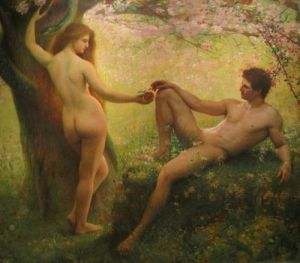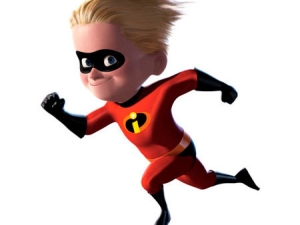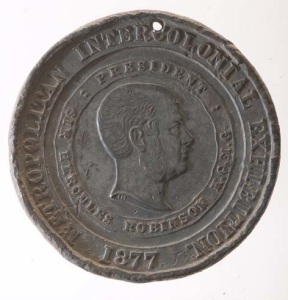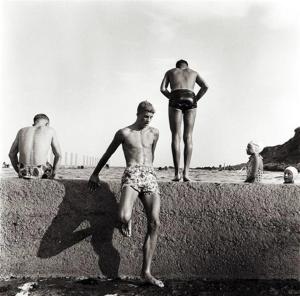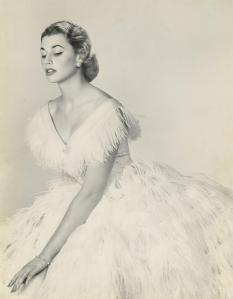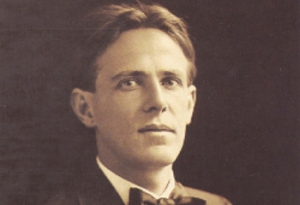Tags
Biblical names, celebrity baby names, epithets and titles, fictional namesakes, Greek names, hebrew names, international name popularity, Irish names, modern classics, mythological names, name history, name meaning, name popularity, name trends, names from movies, nicknames, popular names, saints names, UK name popularity, US name popularity
The Spring Equinox has just passed, and I’m planning on doing lots of gardening in the school holidays. So here’s a name suited to the season of new life and growth.
Biblical Namesake
Eve is derived from the Hebrew name Hawwah (in modern Hebrew, Chavah) which comes from both the word for “breath” and for “life”. It can be translated as “she who lives” or “source of life”.
The goddess Asherah, who was the wife of God in early Semitic tradition, held the title Chawat, which is the source of the name. Interestingly the word is from the same root as the word for “snake”, as these creatures are symbols of wisdom, and serpents were sacred to Asherah.
As the first pages of the Old Testament tell us, Eve was the first woman, created by God as a wife for the first man, Adam. God fashioned Eve from Adam’s rib while he slept. The story is quite similar to a Sumerian myth: in this case, the word for “rib” was a pun on the word for “life”, which explains why Eve was made from this body part.
Eve and Adam began in complete harmony with nature, living in the Garden of Eden as caretakers to the plants and animals, and eating only fruit and other plants. The couple were in a state of blissful innocence, and wore no clothes, for the Bible tells us that they were “naked and not ashamed”.
Apart from the simple requirements of daily gardening and animal husbandry, a raw food diet, strict veganism, and total nudity, God really only had one major rule and that was not to eat fruit from the Tree of Knowledge of Good and Evil, which is an impressive way of saying The Tree of Knowledge of All Things, or even just The Tree of Knowledge. He decreed that the punishment for this crime would be an immediate death sentence.
The Tree of Knowledge was right in the middle of the Garden of Eden so you couldn’t avoid seeing it, and it was an especially beautiful tree, laden with the most delicious-looking fruit. This was the start of the original “trouble in paradise”.
The snake was said to be the craftiest and most cunning of all the animals God had created, and in those days it walked upon legs. It was also able to talk, or perhaps Eve and Adam had the innate ability to understand the speech of all creatures.
This crafty, leggy, chatty snake schmoozed up to Eve and, without ever actually suggesting this would be a good idea, or that she should do it, the snake cleverly planted the idea in Eve’s mind that eating the fruit of the Tree of Knowledge would open her mind to untold wisdom. It would make her the intellectual equal of God, and the experience wouldn’t lead to death after all.
So what with these cunning arguments, and the tree being so delectable and accessible, Eve ate the fruit. She handed it over to Adam, and he ate it as well. It’s worth pointing out that the Bible says that Adam was right next to Eve the whole time, and had presumably heard all the same crafty snake talk without butting in with any counter-arguments, or insisting they’d better leave right now. Nope, he just hoed right in on a forbidden fruit binge.
Their minds now open to all knowledge, the first bit of information they received was they were walking around in the nude, and that made them feel suddenly ashamed. Hastily they sewed themselves loincloths out of fig leaves, and then hid from God, because another vital bit of info they’d gotten was that they’d done something incredibly bad, and now had this horrible gnawing feeling, which was guilt.
Part the knowledge they had imbibed was the ability to pass the buck, because once God started asking them a few probing questions Adam was quick to pin it all on Eve, and Eve was just as fast shifting all the blame on the snake.
Of course when God learned the truth, the proverbial hit the fan and there were major penalties handed out. The snake became legless so he had to crawl in the dust, and from now on humans would hate and fear him. Eve would suffer horrible pain during childbirth so that sexual desire would be its own punishment, and she would be subservient to her husband. The earth itself would turn against Adam, so that he would have to work and suffer for every mouthful he ate.
Finally God banished Eve and Adam from the Garden of Eden, because he was afraid that now they knew everything their next step would be to eat from the Tree of Life, which was right next to the Tree of Knowledge, and gave immortality to those who ate from it. Mysteriously, this tree wasn’t mentioned before and God never warned them off it. But he was worried now, and set some fiery cherubim to guard it.
It was only after all these events that Adam gave Eve her name, to show that she would become the mother of all humanity. Before this, Adam just called her Woman. It’s food for thought that Eve’s name came only after she had lost her innocence, and that Adam only knew her name when he had eaten from the Tree of Knowledge. Eve is a name born out of hard-won wisdom.
According to Christian tradition, Adam and Eve repented of their sin and were forgiven by God. They ascended into Heaven upon the Resurrection of Christ, and have been canonised as saints, with their feast day being Christmas Eve, aptly enough.
There has been a tendency to see Eve as responsible for the Fall of Man. She is often cast in the role of temptress, and the phrase “the wisdom of Eve” refers to feminine wiles. It is further extrapolated that all women are somehow more sinful by nature, and the Bible is sometimes used to justify women being kept in submission, even though hardly anybody seems to think that men as a sex should have to struggle and suffer for every bite of food.
Eve is a fascinating character. Unlike Pandora, she was not given to man to plague him, but made to be his companion, “flesh of his flesh, bone of his bone”. She is the first mother yet she isn’t primarily a fertility figure, but one who is hungry for wisdom and brings knowledge to the world. In a sense, her act made the world as we know it – not the natural world created by God, but the human world of thoughts and ideas, of good and evil, of choices and consequences.
Name Information
Eve has been used as an English name since the Middle Ages, and was introduced by the Normans; there is a French saint named Eve who is the patron of the city of Dreux. The Latin form Eva was more common, but in everyday life the person might have been called Eve. The name has remained in use ever since, and in Ireland was sometimes used to Anglicise the name Aoife.
Eve first joined the charts in the 1950s at #409. The award-winning drama All About Eve came out in 1950, starring Anne Baxter as the scheming Eve Harrington. In the film, the name Eve is deliberately chosen to evoke a sense of deception. Another film of this decade was the 1957 The Three Faces of Eve, with Joanne Woodward winning the Best Actress Oscar for her portrayal of a woman with multiple personality disorder.
The name Eve stayed around the 400 mark for decades, but began climbing steeply in the 2000s. It joined the national Top 100 last year. Currently it is #87 nationally, #95 in New South Wales, #65 in Victoria, and #46 in the Australian Capital Territory Territory. Last year it was one of the fastest-rising names for girls, going up 14 places, and was a fast-rising name in Victoria and the Australian Capital Territory.
In the US the name Eve was almost continuously on the Top 1000 from the late 19th century until the mid 1980s, peaking in the early 20th century around the 400s. The name went off the charts in 1985, but reappeared in 1998 – the same year that rapper Eve Jeffers-Cooper, who performs under her first name only, began her career. Since then it has risen, and is now #475 and fairly stable.
In the UK, Eve joined the Top 100 in 1999, the same year British actor Clive Owen welcomed a daughter named Eve, and peaked in 2001 at #50. It left the Top 100 in 2010, the same year American rapper Eve began dating British entrepreneur Maximillion Cooper, now her husband. It is currently #161. Eve is still popular in Ireland, Northern Ireland, and Scotland, and is in common use in France.
Eve is an ancient name, but one that has gained a very modern image, as it’s a favourite in sci fi to give to a “first woman” of some kind (the first gynoid or clone, for example), and also works well as an acronym, such as the robot EVE – Extraterrestrial Vegetation Evaluator – in Wall-E.
This is a slim and trim modern classic underused for centuries due to the association with the biblical character, who is both our mother to revere, and blamed for our fall from grace. It is interesting that both Adam and Eve joined the charts in the 1950s, but Adam became popular almost immediately while Eve languished.
It’s never been able to match classic Eva (its Latin form) or popular Zoe (the Greek version), but it feels as if Eve’s day might be arriving. It fits in so perfectly with current trends for names such as Ava and Evelyn, and is a possible formal name for the popular nickname Evie.
Based on overseas trends, you wouldn’t expect Eve to go very much higher than it is already, but as every country has its own profile for Eve, we’ll have to wait and see what happens here.
POLL RESULTS
The name Eve received an overwhelming 99% approval rating, making it the highest-rated name of 2016. 46% of people loved the name Eve, and only one person disliked it. Nobody hated the name Eve.
(Painting is Adam et Eve au jardin d’Eden by Gustave-Claude-Etienne Courtois, 1853-1923)

